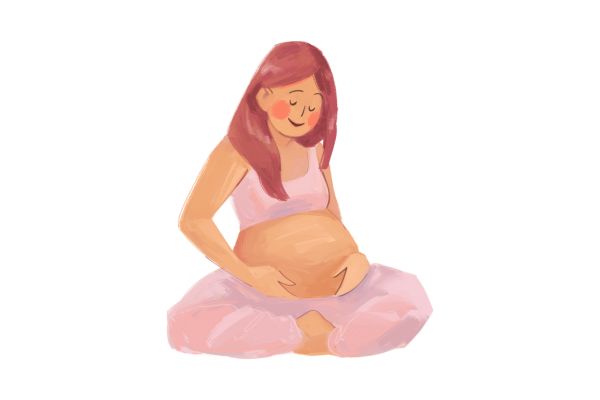Pregnancy is a beautiful journey but also one requiring caution and adjustments. Avoiding alcohol entirely is critical for prenatal health, and the timing of abstinence matters immensely. This article explores the worst time to drink during pregnancy, emphasizing why each stage poses unique risks.
Conception and Early Pregnancy

The most vulnerable time to drink is around conception and the first trimester. This crucial period sees the embryo form and vital organs develop. Any alcohol exposure can have severe consequences, including:
- Neural tube defects: Spina bifida and other serious malformations.
- Increased miscarriage risk: Alcohol disrupts early development, raising the chances of losing the pregnancy.
- Low birth weight and developmental delays: Alcohol hinders healthy growth and can impact the baby’s future.
If planning a pregnancy or suspecting you might be pregnant, abstaining from alcohol is crucial. Even moderate intake can disrupt delicate processes with lifelong repercussions.
Second Trimester

While considered more stable, the second trimester isn’t a safe zone for alcohol. This phase is marked by rapid growth and organ development, making it another critical period to avoid drinking. Risks include:
- Facial abnormalities: Alcohol can affect facial features, leading to birth defects.
- Intellectual disabilities and behavioral problems: The developing brain is highly sensitive to alcohol’s harmful effects.
- Placenta’s limitations: Though it filters some toxins, alcohol can still reach the fetus.
Maintaining alcohol-free throughout pregnancy protects the organs and ensures healthy development for your baby.
Third Trimester

The final trimester focuses on final preparations for birth. The worst time to drink here is when the brain finishes maturing, and the lungs prepare for independent function. Alcohol exposure can lead to:
- Preterm birth: Alcohol can trigger early delivery, posing health challenges for the infant.
- Long-term behavioral and learning issues: Exposure during this crucial time can have lasting consequences.
Remember, the effects of alcohol aren’t always immediate. Some issues may emerge later in the child’s development. Avoiding alcohol in all trimesters minimizes risks and promotes optimal well-being.
Beyond Pregnancy
The repercussions of prenatal alcohol exposure extend beyond pregnancy. Children exposed to alcohol in utero may experience:
- Fetal Alcohol Spectrum Disorders (FASD): A range of physical, cognitive, and behavioral challenges resulting from alcohol exposure.
- Lifelong support and intervention: Affected individuals may require ongoing assistance to manage these challenges.
What are the risks of alcohol consumption during pregnancy?
Some of the potential risks associated with alcohol consumption during pregnancy include:
- Miscarriage: Studies suggest an increased risk of miscarriage, especially in the first trimester, with any alcohol consumption.
- Fetal alcohol syndrome (FAS): This is the most severe consequence of prenatal alcohol exposure, causing facial malformations, intellectual disabilities, and growth problems.
- Fetal alcohol spectrum disorders (FASDs): These are a range of conditions less severe than FAS but still caused by prenatal alcohol exposure, including learning difficulties, behavioral problems, and attention deficits.
- Growth retardation: Alcohol can slow fetal growth and lead to low birth weight.
- Birth defects: Alcohol can increase the risk of certain birth defects, such as heart problems and cleft lip and palate.
- Brain development problems: Alcohol can disrupt brain development, leading to problems with learning, memory, and behavior.
Conclusion: Choosing the Best for Your Baby
Ultimately, the worst time to drink during pregnancy is any time. Every stage poses unique risks to the developing child. Pregnant women and those planning pregnancy should prioritize their child’s health by abstaining from alcohol entirely. Avoiding this harmful substance is a recommendation and a commitment to your child’s lifelong well-being and happiness.
Remember: Abstaining from alcohol protects your baby, minimizes risks, and paves the way for a healthy, joyful journey through pregnancy and beyond. Choose the best for your child; choose abstinence.
Disclaimer
This article is for informational purposes only and should not be construed as medical advice. Please consult your doctor or other qualified healthcare provider regarding any questions or concerns about alcohol consumption during pregnancy.





